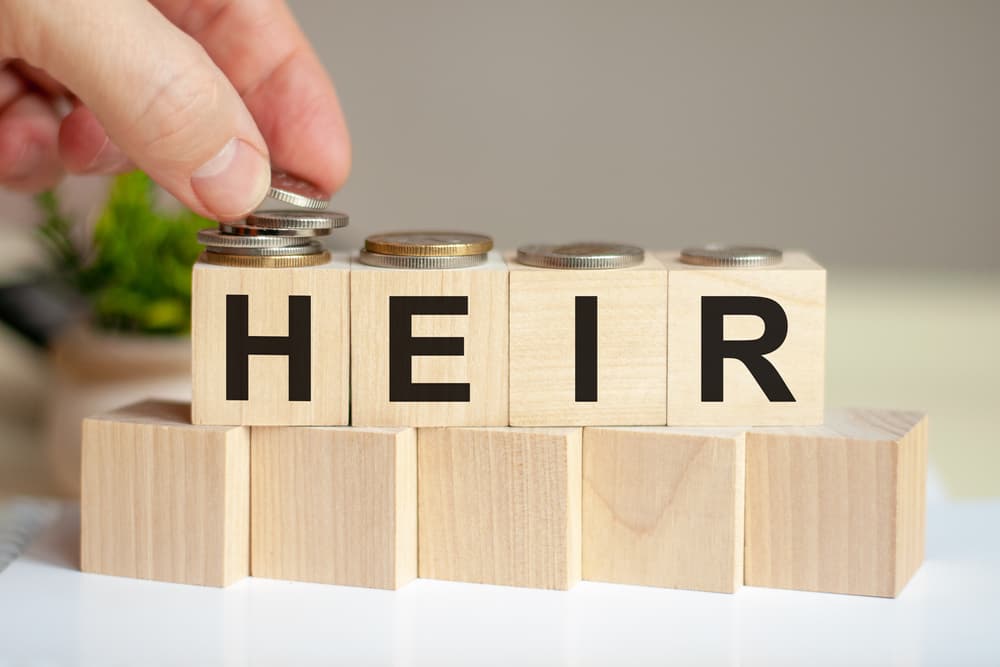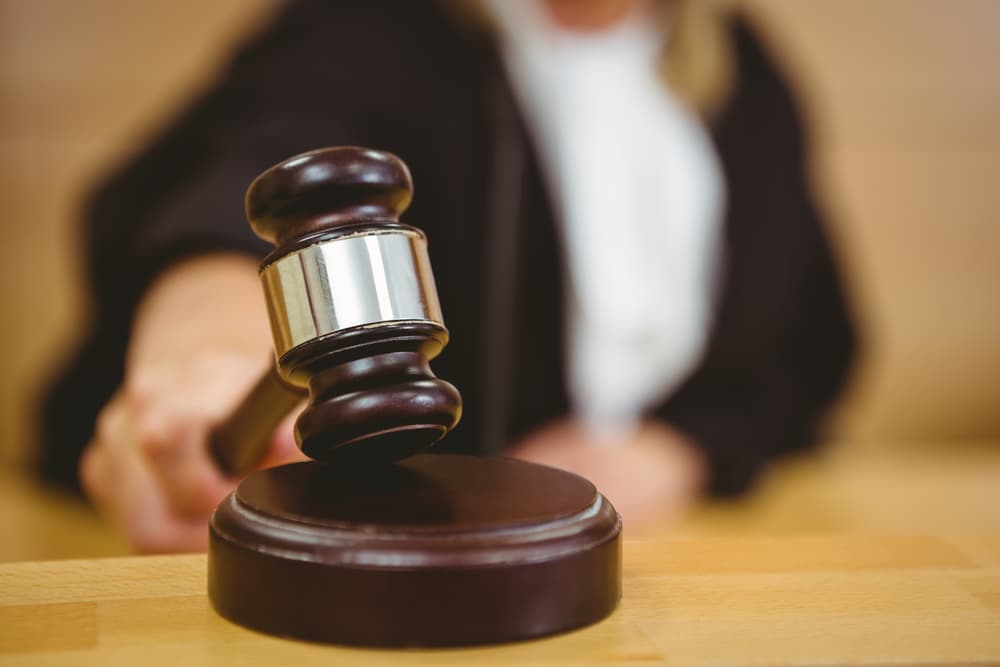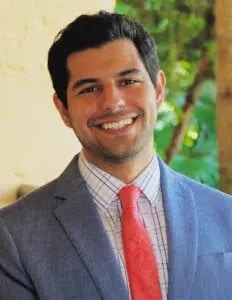Contesting a Will in Florida
Florida Attorneys
Serving You and The State of Florida
Florida probate courts invalidate hundreds of wills each year when beneficiaries prove fraud, undue influence, or mental incapacity. A handwritten change leaving an entire estate to a new caregiver, for example, may not withstand court scrutiny.
A Florida will contest attorney must file challenges within three months of receiving the Notice of Administration, or the right to contest is permanently lost. The difference between inheriting your rightful share and watching assets go to manipulative outsiders depends on understanding Florida’s strict contest procedures and acting quickly.
Call Lopez Law Group today at (727) 933-0015 to speak directly with an experienced Florida will contest attorney who can protect your inheritance.
Key Takeaways About Contesting a Will in Florida
- Florida law gives you only three months from Notice of Administration to contest a will, with no extensions except for misstatements about the deadline.
- Valid grounds for contesting include undue influence, lack of mental capacity, fraud, forgery, and improper execution of the document.
- Only interested parties like named beneficiaries, previous beneficiaries, or intestate heirs have legal standing to challenge a will.
- Florida doesn’t enforce no-contest clauses, so you keep your inheritance even if your challenge fails.
- Successfully contested wills either revert to previous valid versions or distribute assets through intestate succession laws.
Valid Legal Grounds to Contest a Will in Florida Probate Court
Florida law recognizes specific circumstances that invalidate wills, each requiring different types of evidence to prove in court. Florida Statute 732.5165 establishes the burden of proof for will contests.
Understanding these grounds helps determine whether you have a viable challenge worth pursuing through expensive litigation.
Undue Influence by Caregivers or Family Members

In Florida, courts look at whether the influencer had a confidential relationship with the testator, took part in preparing or arranging the will, and received a large benefit from the changes. Caregivers who separate elderly clients from their families while securing inheritance modifications often face strong scrutiny.
Evidence that may point to undue influence includes:
- Sudden or unexplained changes to a will that favor a new acquaintance
- Meetings with attorneys set up by a beneficiary
- The testator giving inconsistent statements about their wishes
Health problems, age, or the effects of medication can make a person more open to manipulation, and courts take this into account. Judges also consider whether the testator had independent advice and time to think about the changes without being pressured.
How a Florida Will Contest Attorney Proves Lack of Testamentary Capacity
A valid will requires that the person making it has testamentary capacity. This means they must understand what it means to create a will, know the property they own, recognize the individuals who should be considered as beneficiaries, and comprehend how the will distributes assets.
Florida law applies a lower standard for testamentary capacity than for contracts, but significant cognitive decline can still render a will invalid. Dementia, Alzheimer’s disease, severe mental illness, or the effects of heavy medication may prevent someone from meeting the required standard.
Courts often look to medical and testimonial evidence when deciding these cases.
- Medical records, especially cognitive evaluations close to the date of signing, provide the strongest evidence of capacity or incapacity.
- Witness testimony may also support claims of incapacity when it shows the testator was confused, suffered memory problems, or failed to recognize family members.
Judges also consider the possibility of lucid intervals. Even a person with substantial mental impairment may still be capable of making a valid will if they experienced a temporary period of clarity at the time of execution.
How a Florida Will Contest Attorney Handles Fraud and Forgery Claims
Fraudulent wills involve deliberate deception about the document’s nature or contents, while forgery involves fake signatures or unauthorized changes. Someone might trick a confused elder into signing a will thinking it’s a different document. Forgers might create entirely fake wills or add pages to existing documents after execution.
Handwriting analysis helps prove forgery, comparing disputed signatures with known samples from the same time period. Fraud cases require showing the testator relied on false information when making the will. Digital manipulation and sophisticated forgery techniques require forensic document examiners to detect alterations.
Who Has Standing to Contest a Florida Will
Not everyone upset about a will’s contents has legal authority to challenge it in court. Florida law limits standing to interested parties with direct financial stakes in the outcome. Understanding who qualifies prevents wasted time and money on contests courts immediately dismiss.
Named Beneficiaries and Disinherited Heirs

Completely disinherited children and spouses have standing as intestate heirs who would inherit without a will. Florida’s elective share statute gives surviving spouses additional rights regardless of will contents. However, distant relatives excluded from wills rarely have standing unless they would inherit through intestacy.
Executors and Trustees Who Can Contest a Florida Will
Executors named in previous wills may contest newer versions that replace them, especially if they also lost beneficiary status. Trustees of related trusts affected by will provisions have standing to protect trust interests. These parties often possess inside knowledge about the testator’s true intentions.
Florida Will Contest Process and Strict Court Timelines
Florida’s will contest procedures follow strict timelines that trap unprepared challengers who miss deadlines. The process moves quickly once initiated, requiring immediate action to preserve evidence and meet court requirements.
Filing Requirements Within Three Months
The clock starts when you receive formal Notice of Administration from the probate court, not when you learn about the death or will contents. You must file a petition or caveat with the circuit court in the county where probate opened. Missing this deadline eliminates contest rights regardless of your case’s merit.
The petition must specify grounds for contest with supporting facts, not just general suspicions or disagreements. Courts may require filing bonds to cover estate costs if your challenge fails. Some counties have local rules requiring mediation before trial, adding time and expense to the process.
Gathering Evidence in a Florida Will Contest Case
Once filed, both sides exchange information through formal discovery including these tools:
- Depositions of witnesses, medical providers, and parties involved in will preparation
- Document requests for medical records, prior wills, and financial statements
- Interrogatories requiring written answers about relevant facts under oath
- Subpoenas compelling testimony and document production from third parties
Discovery reveals evidence supporting or defeating contest claims while eliminating surprise testimony at trial. Strategic discovery targets key witnesses before memories fade or they become unavailable.
What to Expect at a Florida Will Contest Trial
Will contests receive jury trials if requested, though many parties choose bench trials before judges experienced in probate matters. Contestants bear the initial burden of establishing grounds for invalidation. If proven, the burden shifts to will proponents to demonstrate proper execution.
Trials involve witness testimony, document presentation, and expert opinions from medical professionals or handwriting analysts. Florida’s liberal evidence rules permit hearsay testimony about the deceased’s statements regarding their intentions. Appeals may extend proceedings for years, though estates often settle during litigation to avoid uncertainty.
Outcomes and Consequences of Successful Will Contests
Winning a will contest doesn’t automatically mean you inherit everything you wanted. The consequences depend on what other valid documents exist and how Florida’s intestacy laws apply to the family situation.
How Florida Courts Handle Previous Valid Wills After a Contest
If earlier wills remain valid, successfully contesting the latest version revives the most recent unchallenged will. This outcome benefits contestants who received better treatment in prior documents. However, if previous wills also have validity issues, the contest might eliminate all testamentary documents.
Multiple valid wills from different time periods create complex situations requiring courts to determine which provisions survive. Partial invalidity might preserve some sections while eliminating others. These nuanced outcomes highlight why skilled legal representation matters in contest proceedings.
Florida Intestate Succession When No Valid Will Survives
When contests invalidate all existing wills, assets distribute according to Florida Statute Chapter 732 intestacy rules.
Surviving spouses receive the entire estate if no descendants exist, or share with children depending on their relationship to the deceased. Children inherit equally, with deceased children’s shares passing to their own children.
More distant relatives inherit only when no spouse or descendants survive, following statutory priority orders. This mechanical distribution ignores the deceased’s probable wishes, potentially benefiting estranged relatives while excluding close friends or charities. Intestacy often produces results nobody wanted, motivating settlements during contest proceedings.
Defending Against Will Contests as an Executor
Personal representatives defending wills face fiduciary duties to all beneficiaries while protecting the estate from improper challenges. Florida law provides tools to defeat meritless contests and recover costs from unsuccessful challengers.
Establishing Proper Will Execution in Florida
In Florida, wills must satisfy strict statutory requirements to be considered valid. To strengthen enforceability and reduce the risk of challenges, several best practices can be followed:
- Strict formal requirements apply: Wills must include the testator’s acknowledgment and signatures from witnesses in accordance with Florida law.
- Self-proving affidavits enhance validity: Attaching a self-proving affidavit creates a presumption of validity that is difficult for challengers to rebut.
- Attorney supervision adds evidentiary value: When will contest attorneys oversee execution, they may later testify regarding the testator’s mental capacity and freedom from undue influence.
- Video recordings serve as persuasive defense evidence: Recordings of the signing can show the testator’s mental state and voluntary participation.
- Medical records provide contemporaneous proof of capacity: Documentation of mental capacity around the time of execution can counter later claims of incapacity.
- Multiple witness accounts strengthen defenses: Consistent testimony about the testator’s clear intentions helps guard against influence allegations.
Taken together, these measures provide strong evidence of a will’s authenticity and the testator’s intent, making it more difficult for opponents to successfully challenge the document in probate.
Attorney Fees and Cost Recovery in Florida Will Contests
Florida follows the American rule requiring parties to pay their own attorney fees unless statutes or contracts provide otherwise. However, estates may recover costs from contestants who file frivolous challenges lacking factual or legal basis. This risk deters weak contests while protecting estates from harassment.
Personal representatives may seek court approval for estate-paid defense costs when contests threaten valid wills. Successful defenses preserving the testator’s intentions justify these expenses.
Some wills include specific provisions authorizing aggressive defense against contests, though Florida’s no-contest clause prohibition limits their effect.
How Our Florida Will Contest Attorneys Protect Your Inheritance Rights

We move quickly to protect evidence before it disappears. We interview witnesses while their memories remain clear and obtain medical records before facilities destroy them.
We also file petitions within Florida’s strict three-month deadline and take depositions from healthcare providers, neighbors, and family members who observed concerning behavior. Our team examines every change to documents, signature variation, and suspicious timing that may indicate manipulation.
FAQs for Florida Will Contest Attorneys
What if the will was changed right before death?
Last-minute will changes raise red flags for undue influence, especially when benefiting caregivers or recent acquaintances over longtime family members. Florida courts scrutinize deathbed changes, examining the testator’s vulnerability, who arranged the attorney visit, and whether family had access during final days. These suspicious timing patterns often support successful contests.
What happens to estate distributions during a will contest?
Estates typically freeze distributions during active contests to avoid complications if wills get invalidated. Personal representatives may petition courts for partial distributions of uncontested assets or family allowances. Emergency support payments to surviving spouses or minor children continue despite pending contests.
Can I contest a will after the three-month deadline?
Florida strictly enforces the three-month deadline with virtually no exceptions beyond clerical errors about the deadline date itself. Late discovery of fraud or new evidence doesn’t extend deadlines. Your only option involves separate civil lawsuits for damages against wrongdoers rather than invalidating the will itself.
Do no-contest clauses prevent me from challenging a will?
Florida Statute 732.517 explicitly voids no-contest clauses, making them completely unenforceable regardless of the testator’s wishes. You retain your inheritance even if your challenge fails, removing financial risk from pursuing legitimate concerns about will validity.
What evidence best supports undue influence claims?
Isolation of the testator from family, dramatic last-minute will changes, beneficiary involvement in will preparation, and testator dependency on the influencer provide strong evidence. Medical vulnerability, secretive will execution, and unnatural dispositions favoring new acquaintances over family strengthen these claims.
Protect Your Florida Inheritance with a Will Contest Attorney

SeanCarlo Lopez, Florida Probate Attorney
Every day you wait to contest a suspicious will brings you closer to the unforgiving three-month deadline that eliminates your rights forever. A caregiver who suddenly appeared in your loved one’s final months should not walk away with an inheritance built over generations. Florida probate courts see cases like this regularly, but they only help those who act quickly with experienced legal counsel.
The Florida will contest attorneys at Lopez Law Group know how to build compelling cases that prove undue influence, incapacity, or fraud affected your loved one’s final documents. Our team gathers evidence aggressively, deposes key witnesses effectively, and presents your case persuasively to judges and juries throughout Florida.
Don’t let manipulators steal your family’s legacy through fraudulent documents. Call (727) 933-0015 today to schedule your consultation with an experienced Florida probate attorney and protect what rightfully belongs to you and your family.
Practice Areas
What Our Clients Say
A Godsend
Mr. Lopez was a Godsend and really helped me with my situation. Him and the entire firm were very diligent and helped speed the early stages of the process along due to a pressing situation. Throughout my experience working with the firm, they were always responsive and available any time I had a question or wanted to check on the state of affairs. Hopefully I won’t have to recommend Lopez Law Group to my friends or family, but if those unfortunate circumstances arise then there’s only one name I would trust. Thank you again for all your help!
Lopez Law Group Can See You Through Cases Like:
Don't See What You Need?
Lopez Law Group
700 7th Ave N, Suite A,
St. Petersburg, FL 33701
P: 727-933-0015
Business Hours
Mo, Tu, We, Th, Fr
Schedule a Call Back
Book a Consultation






















